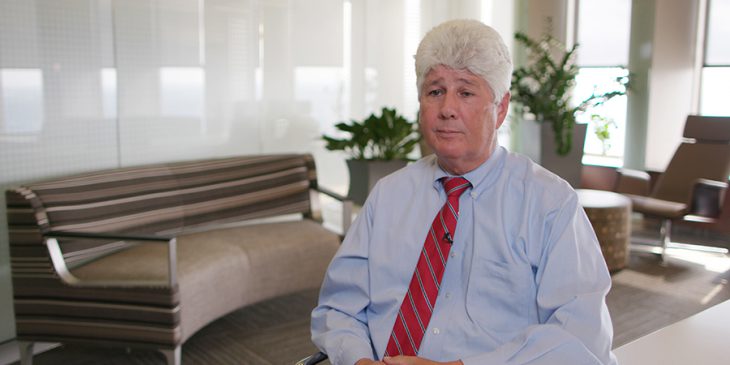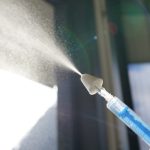When thinking about how to address the opioid epidemic and substance use disorders (SUDs), which affect more than 20 million U.S. citizens in any given year, the conversation is dominated by discussions around individuals who suffer from an addiction.
On this front, much progress has been made in recent years as a result, as more people with addiction are getting help. However, with all the focus on treatment for the sufferer, or prevention of overdose, discussions around the devastation it causes to family members and loved ones often goes unnoticed.
Dr. Dennis Daley is the senior clinical director of Substance Use Services at UPMC Health Plan and a professor of psychiatry at the University of Pittsburgh Department of Psychiatry. During his time at the Health Plan, he has advocated for families and the need to include them when working with patients who suffer from opioid or other SUDs.
“Families are often devastated by substance use disorders, which cause emotional chaos, financial distress, and many other problems,” he said. “Too many families have lost a loved one to active addiction, incarceration or death from overdoses, accidents or medical complications of SUDs.”
The Health Plan not only focuses on helping individuals work through their substance use disorder, but also offers educational programs. The programs aim to help everyone involved understand SUDs and their impacts. A child of a parent suffering from SUD is at a higher risk of using substances, developing a SUD, depressive, anxiety or other psychiatric disorder, and having academic problems.
How is UPMC Health Plan Helping the Community?
The Health Plan places heavy emphasis on responsibility and integrity by ensuring educational materials and learning opportunities are provided to the community at large.
“We have offered, in the last two years, over 100 educational programs, organized conferences from one to five days, three telehealth town halls [two of which were also Facebook live events], podcasts, webinars, and other educational programs,” Daley said. “We organized a monthly UPMC addiction and recovery Grand Rounds.”
He further explained that most of the educational programs include perspectives from SUD family members. The inclusion of family members in recovery in workgroups and other educational events propels UPMC’s SUD initiative forward.
By collaborating with other divisions of UPMC, such as Community Care Behavioral Health, Community Medicine Inc., General Internal Medicine, Psychiatry, hospital emergency departments, pharmacy, and others, the Health Plan’s work toward the inclusion of quality pain management, treatment options and educational material of SUD in the community is widespread.
The Health Plan also provided financial support for physicians, nurse practitioners and physician’s assistants to engage in an eight-hour training course required to receive an FDA waiver to prescribe Buprenorphine®, a controlled opioid used to help addicted patients engage in longer-term recovery (the latter two groups are required to complete an additional 16 hours of training). By doing so, UPMC patients have the option of receiving medication-assisted treatment in UPMC health care settings other than licensed addiction treatment centers in the community. More patients with opioid use disorders (OUDs) are receiving treatment as a result of the increase in medical practitioners trained to treat OUDs.
“The Health Plan supported the training because we have a huge opiate problem and not enough people get treatment,” Daley said. “Only about 10 to 15% with a SUD get help in an addiction program. These rates are higher for those with opioid addiction since UPMC has expanded the capacity to offer treatment in medical programs. The more medical practitioners who get trained, the more patients can be reached in UPMC. And, as patients improve, families often improve as well.”
Focus on Families
“You cannot take any disease or disorder and look at it just from the point of view from the sufferer,” Daley said. “You have to look at the family system because loved ones are affected and are often the ones taking care of the addicted sufferer.”
Because those with an OUD often live or are in close contact with their family or other loved ones, the Health Plan offers or facilitates counseling and family mutual support programs to the caretakers. The Health Plan has also sponsored free naloxone kits given to families and provided education materials on how to reverse drug overdoses. Many family members, while helping support their loved one’s recovery, are also engaging in their own recovery to learn coping skills and improve their own health since addiction takes its toll on them.
Promoting healthy living is part of the mission of the Health Plan. Through initiating outreach programs and offering life-long recovery options, they exemplify responsibility and integrity not only to the community, but its employees.
“UPMC programs and the Health Plan have an Employee Assistance Program and the Health Plan has a Prescription for Wellness Program,” Daley said. “Both have trained practitioners who can help an individual or family member with any type of SUD. These programs can help determine substance problem severity, what type of help may be needed, and facilitate ongoing treatment for addiction if needed. These programs can also help family members cope with stress, confusion, anger and emotional chaos often caused by a loved one’s SUD.
“We want to educate people, raise awareness, promote recovery, and most importantly, we want to give hope that recovery is possible.”
To learn more about the Health Plan’s resources for combatting the opioid epidemic, visit their website.









